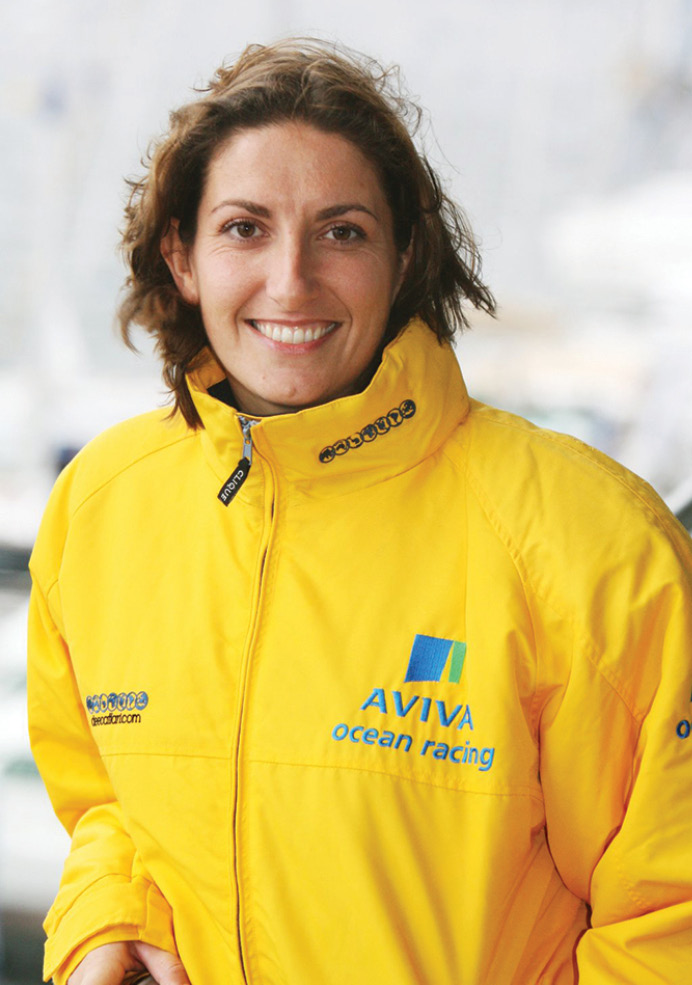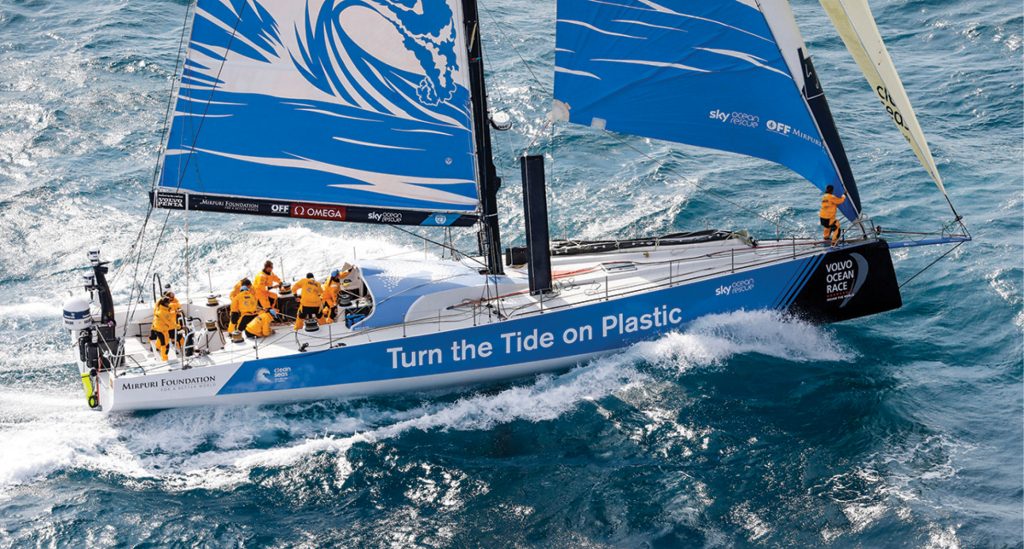By Amber Stronk, Communications Manager at Sailors for the Sea powered by Oceana

Dee Caffari © deecaffari.co.uk
With over 12 million registered boats in the U.S. alone, many of these sailors and boaters see firsthand the issues that our oceans face such as plastic pollution, oil spills and marine habitat destruction. Sailors for the Sea is mobilizing engaged conservationists within the sailing and boating community who are collectively taking action to address pressing ocean health issues. Our Green Boating initiative provides these boaters with the latest information on sustainable boating practices and opportunities to act on critical policy issues that affect our marine environments worldwide.
Among the sailors who have witnessed drastic changes in ocean health over time is Dee Caffari, an exemplary role model in the sailing community. She has sailed around the world six times and is the first woman to have sailed single-handed and non-stop around the world in both directions. As a sailor who is passionate about ocean health, she recently led the ‘Turn the Tide on Plastic’ team that competed in the Volvo Ocean Race 2017/18. Turn the Tide on Plastic brought widespread awareness about the issue of plastic pollution and inspired many to limit single-use plastics in their everyday lives.
I had the opportunity to discuss Dee’s conservation efforts as a way to continue educating and growing a network of informed and engaged activists within the global sailing and boating community.

Skippering Turn the Tide on Plastic in the Volvo Ocean Race 2017/18, Dee and her crew brought the issue of plastic pollution in our oceans to a worldwide audience. © volvooceanrace.com
Amber Stronk: Can you tell me a bit about your sailing/boating background?
Dee Caffari: I started out my career as a secondary school PE teacher and came to the sport of sailing quite late compared to many. My big break was becoming the first female to circumnavigate the globe against the winds and currents (the wrong way) solo and non-stop. The success of that, led to me taking part in the Vendee Globe in 2008/9 – another solo non-stop voyage around the world, but this time the right way round and competing against some of the best sailors in the world. More recently I have taken part in two iterations of The Ocean Race (formerly The Volvo Ocean Race). In the last edition, I led ‘ Turn the Tide on Plastic’ – the first mixed gender youth team to take part in the race with a strong sustainability message that gained huge momentum.
AS: What was your “Aha moment” that turned you into a conservationist?
DC: Over the last decade I have seen firsthand the increase in ocean pollution, particularly the presence of plastics. As well as the obvious plastic debris seen on beaches and in oceans across the world, the research we carried out on ‘Turn the Tide on Plastic’ revealed that there are micro plastics present in every ocean across the globe. This is extremely worrying, not only because it is negatively impacting marine wildlife, but with fish ingesting micro plastics it is now becoming part of our food chain and we don’t know the impact this will have on the health of the human race.
AS: What has changed more dramatically during your lifetime, the sport of sailing or ocean health?
DC: Ocean health is at a critical point and has deteriorated significantly in my lifetime. Immediate and drastic action needs to be taken to halt and reverse the impact the human race is having on the world. Climate change and pollution are the two biggest issues facing our generation and I believe we need a combination of legislative and behavioral change to make a difference.
AS: How do you think a community of Green Boaters
dedicated to protecting the ocean can be impactful?
DC: I believe that the oceans need all the help they can get. Anything that we can do, no matter how small or large, to make a positive contribution is worthwhile. A great part of the process is education and having a network of dedicated ocean advocates across the globe spreading the word and leading by example is to be encouraged.
AS: What commitments have you made towards restoring ocean health, and what would you challenge other Green Boaters to do?
DC: In my day-to-day life, I avoid single use plastic as much as possible. The less we consume, the less demand there will be for manufacturers to produce it. As consumers, we need to vote with our purses to enforce change. We often underestimate the power we have on corporations. If the demand is not there then they will be forced to change their ways. Projects I am involved with, both on and off the water, need to be sustainable and have an ocean health message. Sailors can look at alternative power supply onboard, be that solar, wind or hydro. We cannot continue to rely on fossil fuels and there is a growth of marinized electric engines and even coach boats for Olympic squads are looking at and using alternative energy sources. ■
This Sailors for the Sea Ocean Watch Essay is reprinted with permission. For more information and to join the race to restore ocean health, visit SailorsfortheSea.org. To learn more about yachtswoman, inspirational speaker and presenter Dee Caffari, log onto deecaffari.co.uk.
